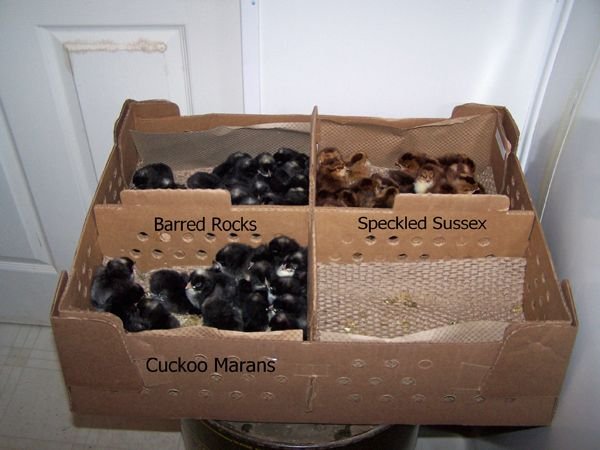
Our 90 chicks are ordered but won’t be here until the 1st of May. But many people have gotten their chicks already, so perhaps this is not as timely as it might have been.
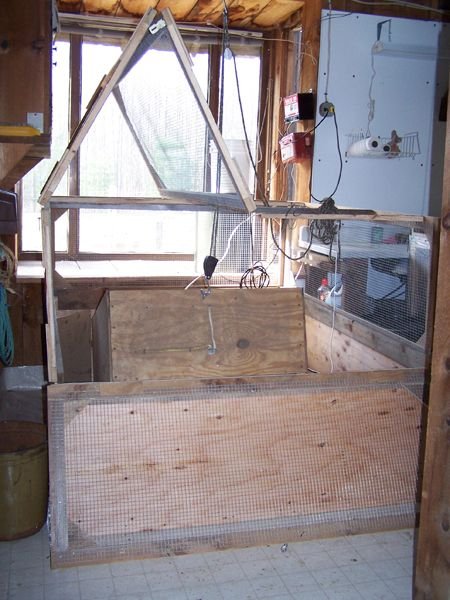
Our brooder is pretty big, as we get 75 – 90 chicks at a time. It’s enclosed in a hardware cloth cage to protect them from predators, as they are raised in the barn.
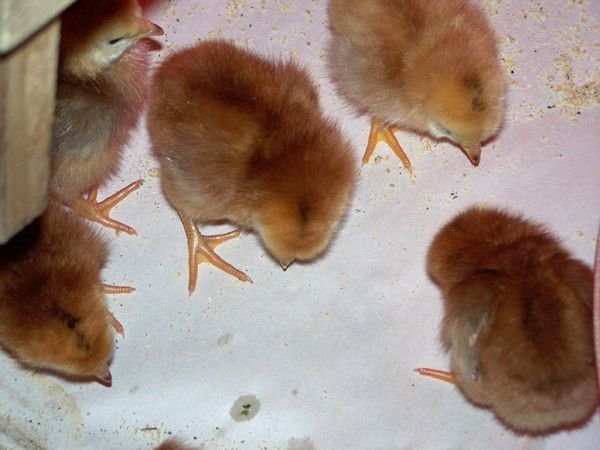
For the floor we put down blank newsprint. We got a whole roll years ago when the local paper stopped printing their own. We put down 2 layers of it. I know some people say it can cause splay leg, but in 10 years of large flocks, we’ve never had a case of it.
When the hover is stored, we take the heat lamps out. So before we put it into the cage, we put the lights in and test them.
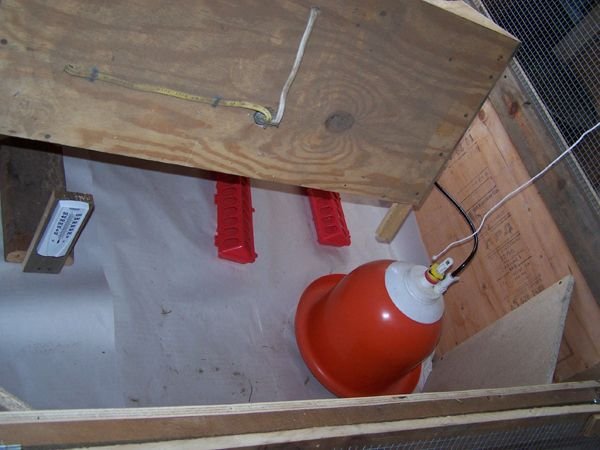
Once that’s in place, we hook up the hoist to lift the hover and start putting in all the amenities. There’s a thermometer set 1½” from the floor, for checking the temperature.
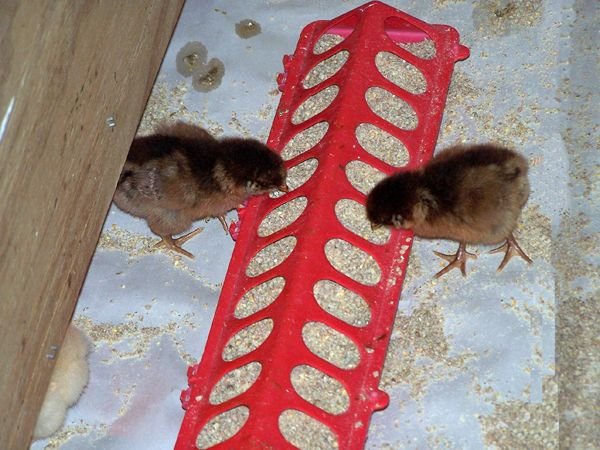
There’s a feed tray for every 25 chicks, this year there will be 4 trays.
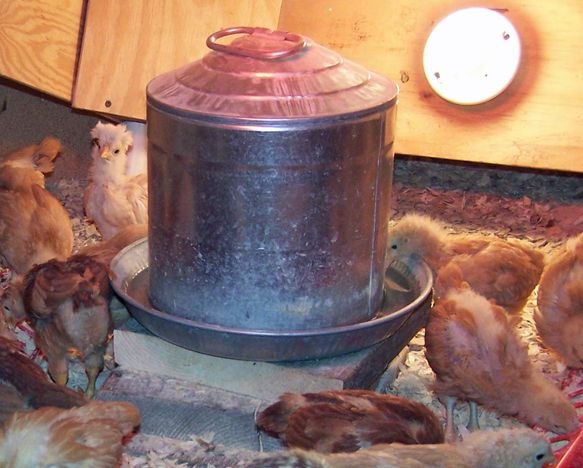
There’s a vacuum waterer under the hover, set up on blocks to keep it clean. This is filled and set in place under the hover. We then start the heat lamps because we found the waterer steals heat. So to determine if the hover is warm enough when they arrive, we start the lamps early and heat the waterer. We want it holding at 95F for the first week.
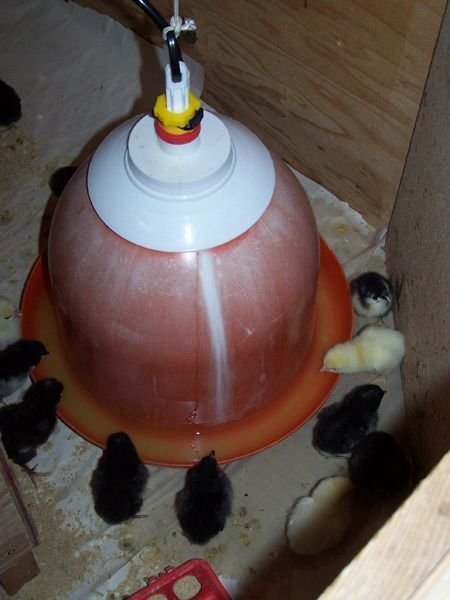
There’s also a gravity fed bell waterer outside the hover. Both are filled with an electrolyte solution for the first 2 weeks.
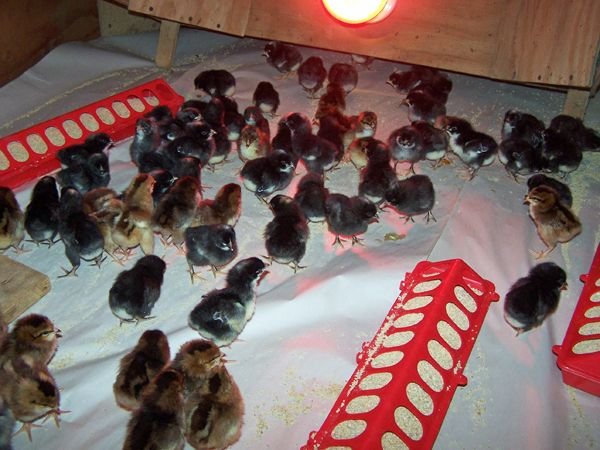
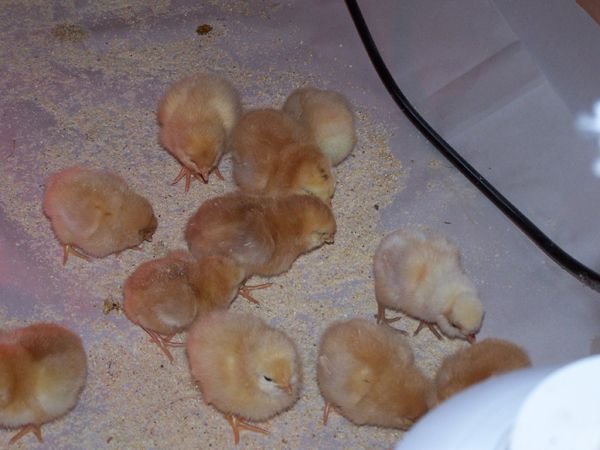
The chicks arrive, beaks are dipped into their water to teach them to drink and they instinctively start pecking at the feed on the floor. Some of the more adventurous ones will try the feed trays and then teach the rest it is food.
We’ve found the organic chick starter we get is too coarsely ground for the chicks. So we use our mill to grind it finer for the first 2 weeks. This feed is spread on the floor in addition to being in the feeders.
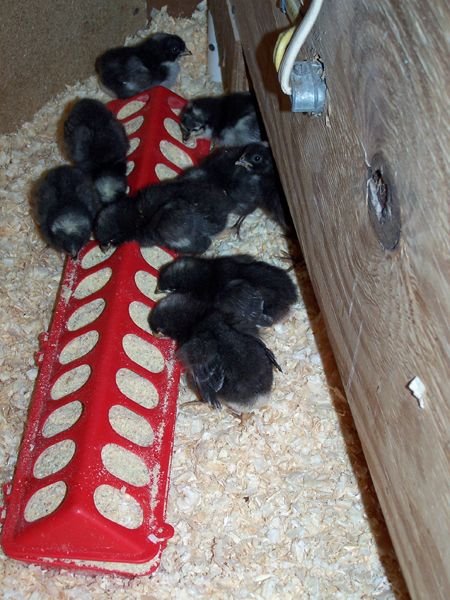
Once the chicks have transferred to eating out of the feeders, we put down bedding, usually on the 2nd or 3rd day.
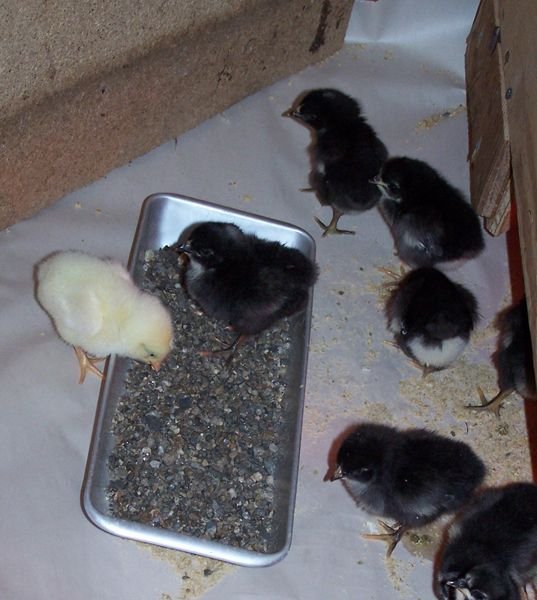
At this time we start supplemental feeding, with tiny grass, clover, forbs, herbs, and clumps of dirt. Because we literally have no stones here, we offer chick sized grit we collect from local gravel banks and rivers.
So that’s how we set up and run the brooder for the early weeks.
